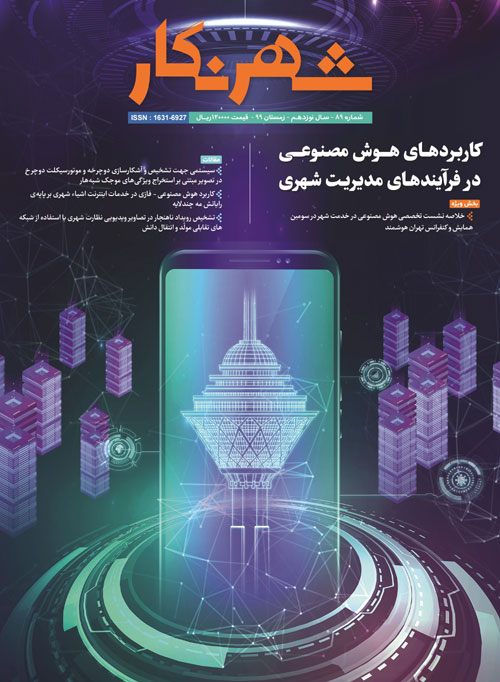The Importace of Rethinking in Urban planning Methods and Urban Policy, Case Study: Harandi Neighbourhood
Based on the results of project measuring quality of life in Tehran
Author(s):
Abstract:
In recent decades, through global transformations, the quality of urban issues in Tehran has undergone fundamental changes. Nowadays we are confronting entirely new issues in cities. In this confrontation, urban planning has serious deficiencies. Instead of applying a radical view, it is emphasizing on immediate measurements and in this way, theorizing is being meaningless. Such a trend is very dangerous because renders urban planning and policy irrelevant. The main problem is lied in the methodology of the dominant approaches in planning. This approaches, use old and new concepts and theories without any critical consideration. While we are essentially facing a new emergent phenomenon: urbanization and production of space on a planetary scale. This new phenomenon is unprecedented. Therefore, the new issues derived from the new phenomenon are unique. Consequently, we need new methods and approaches to understand the new issues. Any analyses of urban question in Iran must be considered in connection with this larger context. Spatial inequality must be conceptualized on the extended framework. Thus, we should focus on this emergent form the process of urbanization and production of space and its internal reproduction mechanism. We should introduce relations and forces into analysis which are operating on various levels, and place cases like Harandi Neighborhood in this extended picture. Otherwise, the analysis is merely restricted to the appearances and we cannot understand more fundamental processes and structures which create these appearances. In this paper, by focusing on Harandi neighborhood, it is demonstrated that the most important barrier exists before resolving urban issues, is the dominant approaches of urban planning system. The most important defect of the dominant approaches is lack of holistic view and thus their fragmentary dealing with the problem. It is argued that issues such as Harandi neighborhood, come from interconnection and interaction of forces and logics existing on various global, national and local scales which are simultaneously economic, political, conceptual and physical. To confront urban issues, it is needed to employ integrated, holistic and complicated approach which is devoid of current reductionisms. Such an alternative approach can be reconstructed on the basis of the political economy of space, and particularly on the Lefebvre's theory of the production of space.
Keywords:
Language:
Persian
Published:
Shahrnegar Bimonthly, Volume:16 Issue: 77, 2016
Page:
58
magiran.com/p1607691
دانلود و مطالعه متن این مقاله با یکی از روشهای زیر امکان پذیر است:
اشتراک شخصی
با عضویت و پرداخت آنلاین حق اشتراک یکساله به مبلغ 1,390,000ريال میتوانید 70 عنوان مطلب دانلود کنید!
اشتراک سازمانی
به کتابخانه دانشگاه یا محل کار خود پیشنهاد کنید تا اشتراک سازمانی این پایگاه را برای دسترسی نامحدود همه کاربران به متن مطالب تهیه نمایند!
توجه!
- حق عضویت دریافتی صرف حمایت از نشریات عضو و نگهداری، تکمیل و توسعه مگیران میشود.
- پرداخت حق اشتراک و دانلود مقالات اجازه بازنشر آن در سایر رسانههای چاپی و دیجیتال را به کاربر نمیدهد.
In order to view content subscription is required
Personal subscription
Subscribe magiran.com for 70 € euros via PayPal and download 70 articles during a year.
Organization subscription
Please contact us to subscribe your university or library for unlimited access!


